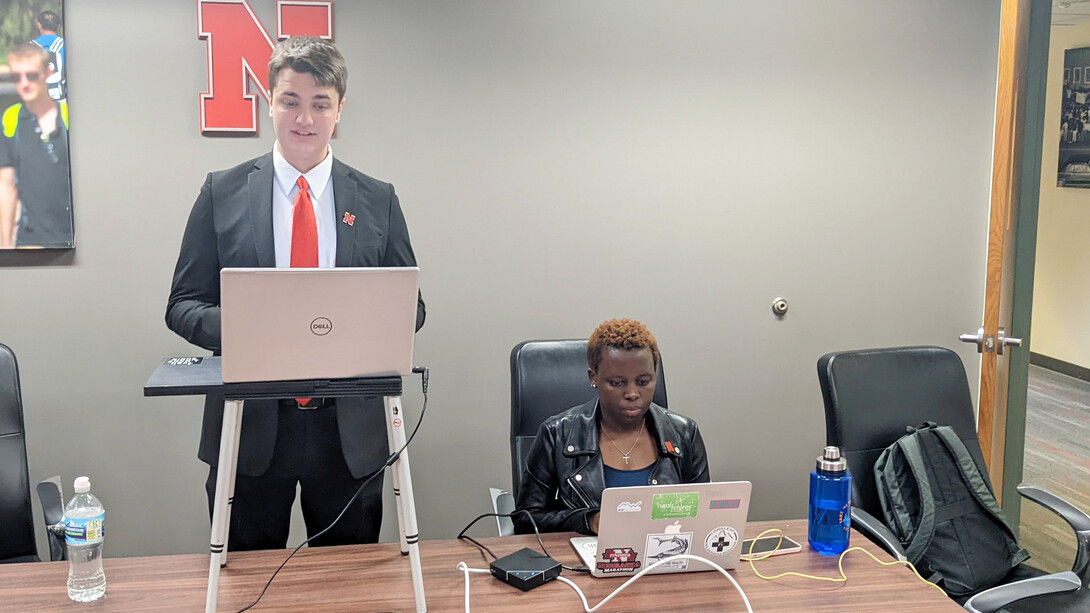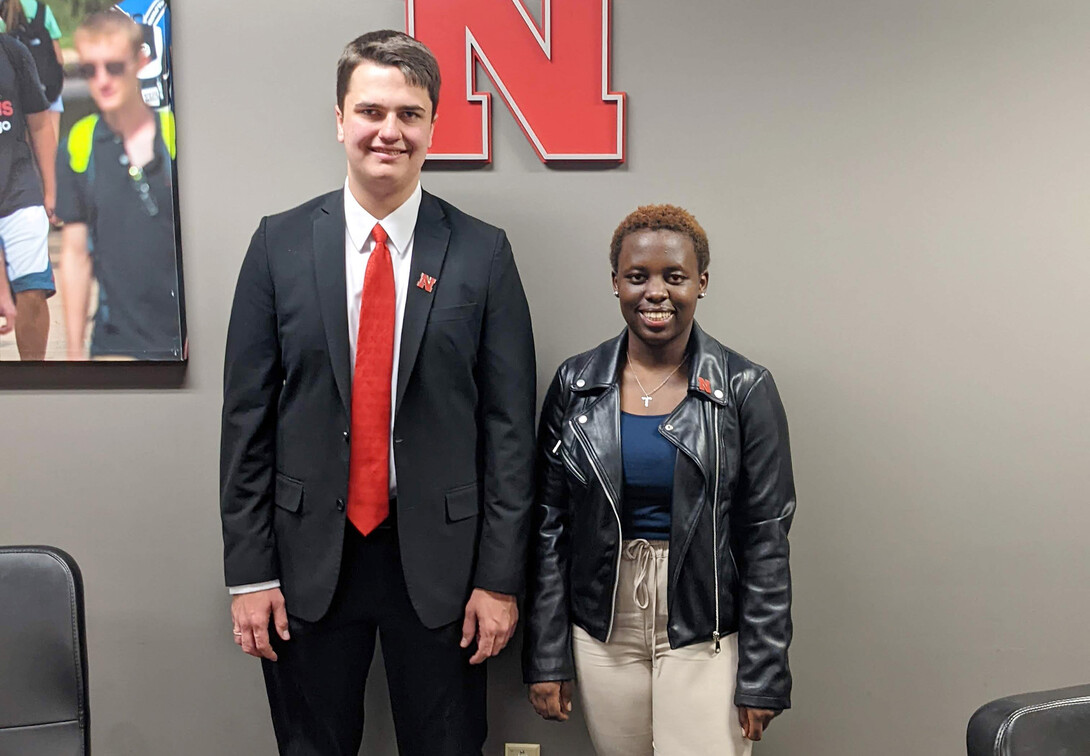
After spending this year in individual competition focused on one topic, Husker debaters Uwase “Andy” Andromede and Nicholas Wallenburg teamed up and turned their attention to a new topic in preparation for a global debate.
As part of the Global Debate Series, the University of Nebraska–Lincoln Speech and Debate team hosted a virtual match of intellect and policy discussion with a team from iDebate Rwanda on Feb. 18. Christian Bahire and Sandrine Umubyeyi represented iDebate Rwanda. The Global Debate Series matches up debaters from across the world with Rwandan students, helping all to hone their skills and think more internationally in their arguments.
Husker debate coach Justin Kirk had been working to welcome an iDebate team to campus before the pandemic upended in-person events and travel. But this semester, they were able to work out a virtual event, which was livestreamed and is available for viewing online.
Andromede and Wallenburg, who are among 10 students on the Husker debate team, have been competing in the Lincoln-Douglass format but switched gears to a hybrid of British Council format for their matchup with the iDebate team. Both said they volunteered to participate to gain experience in a new format, interact with a global audience and do a public-facing debate.
“Being in a global debate helps to kind of challenge our ideas of what the world is like and allows deliberation with people who we otherwise wouldn’t talk to or wouldn’t interact with a whole lot,” Wallenburg said. “That part of it was really interesting to me, as well as the ability to have a debate that is public-facing for people that don’t necessarily know what debate is, to not only show them what we do, but also hopefully encourage people to be more deliberative in their thought process and challenge their ideas, too.”
For Andromede, a senior integrated studies major from Kigali, Rwanda, this debate is a perfect culmination of her collegiate debate career.
“It was a big opportunity to debate with students from my home country,” she said. “And it was a huge opportunity to join a visible format and participate in a new format. It was a challenge, but I wanted to learn a new format, and getting to do this now in my senior year is a great ending.”

This is also the first time Andromede and Wallenburg debated as a team, as competition is done individually. They spent two weeks and countless hours researching literature around the proposed motion regarding foreign aid, outlining their arguments to support their position and practicing their speeches and rebuttals.
“It has been great to partner up with Andy and work together on this,” said Wallenburg, a junior accounting major from Lenexa, Kansas. “Competing with a partner is a totally different dynamic, because not only am I preparing my own argument, but I also have to make sure it is cogent with the argument Andy is preparing. It’s strengthening another skill of working on a team or with others in general.”
Kirk hopes to bring an iDebate Rwanda team to campus for an in-person event in the future.
“They’re really engaging with students and attract a lot of positive attention toward global communication and cross-cultural communication,” Kirk said. “It’s a really important project in civic practice.
“These debates are very good at showcasing why this kind of format of engagement is good for civic education. There’s a whole other set of skills you use when you debate in public, for audiences that don’t necessarily know the technical language used in competitive debate.”
Andromede is working toward a career in public health, and the communication skills she’s developed through debate were solidified by the global debate experience.
“I will be working with many people, so having this skill of speaking in front of people, analyzing information and being able to interact with others — those are all things I’ve gotten from debate,” she said, “and it will be a huge benefit to my career.”
Cornhusker Speech and Debate is housed in the Department of Communication Studies and is open to all students.







